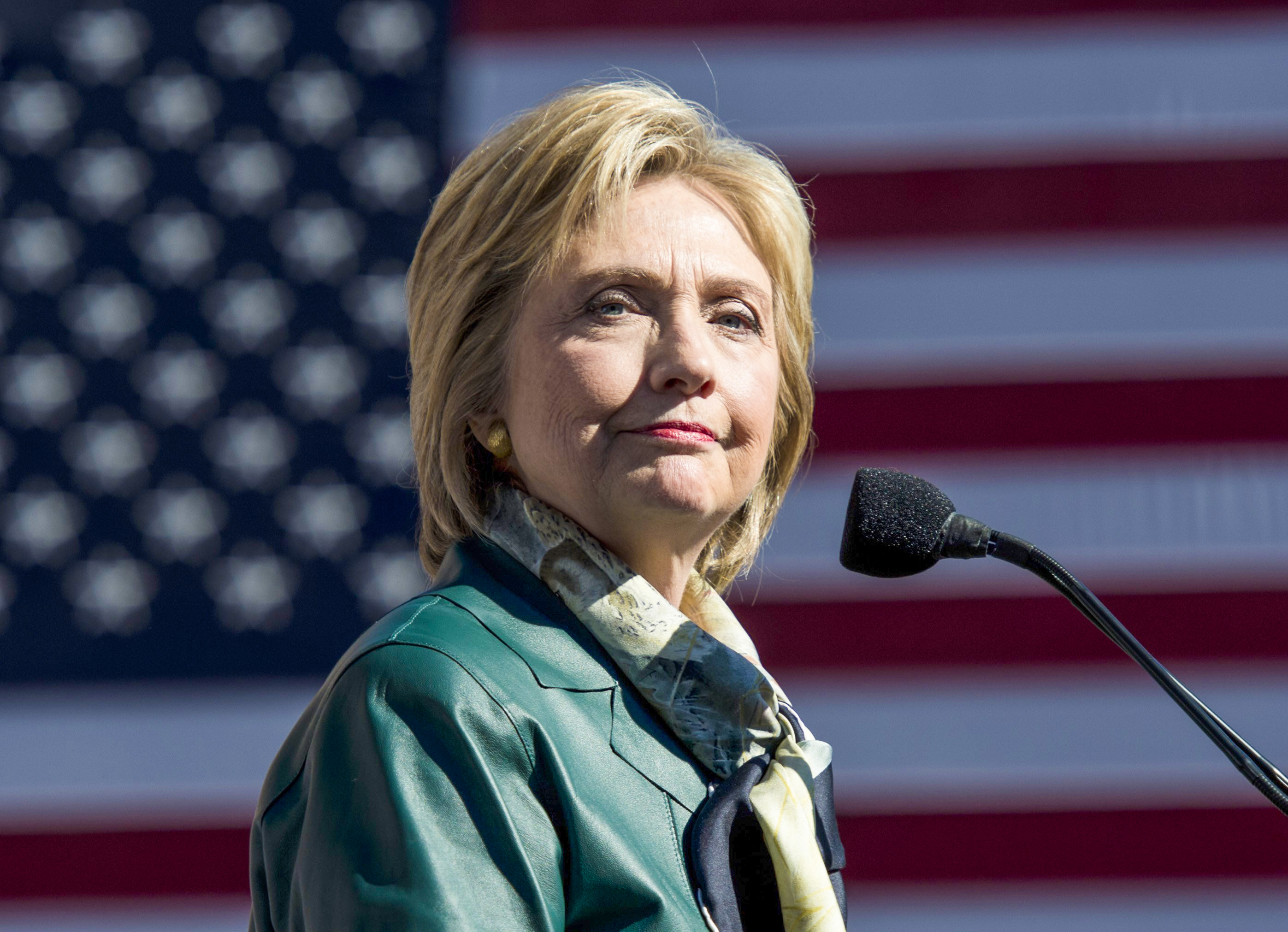A Hillary Clinton victory would be a huge win for feminism. But Democrats should want more.
The symbolism of a female president would be enormous for the left. But her actual policies might not please liberals nearly as much.


A free daily email with the biggest news stories of the day – and the best features from TheWeek.com
You are now subscribed
Your newsletter sign-up was successful
The Democratic presidential race is getting a little cranky. The candidates tore into each other at a Friday night forum, and plenty of fans of Bernie Sanders and Hillary Clinton are joining in, snapping at each other over who is the faux-progressive warmonger and who is the crypto-sexist mansplainer.
Michelle Goldberg argues in Slate that Sanders' fans are being subtly sexist in their attacks on Clinton's policy record, with their "blithe dismissal of any claims that sexism shapes perceptions of Clinton and...unwillingness to acknowledge that breaking men's 226-year lock on the presidency could be a goal with any value at all." Let's hope this isn't all women would get out of another Clinton presidency.
There is indeed a powerful current of sexism that shapes the overall coverage of Hillary Clinton, just like every other female politician. (Witness coverage of her wardrobe, for instance.) Furthermore, it would be a large symbolic victory to have a first woman president, just as it was to have a first black president. That's why the picture of the young black boy feeling President Obama's hair to see if it was like his own was so instantly famous.
The Week
Escape your echo chamber. Get the facts behind the news, plus analysis from multiple perspectives.

Sign up for The Week's Free Newsletters
From our morning news briefing to a weekly Good News Newsletter, get the best of The Week delivered directly to your inbox.
From our morning news briefing to a weekly Good News Newsletter, get the best of The Week delivered directly to your inbox.
But equally obviously, simply electing a black president did not change the fact that America has a bone-deep history of violent racism. Black Americans have continued to exist at the very bottom of the socioeconomic ladder, disproportionately imprisoned, shot by the cops, impoverished, passed over for jobs, and so on. As Ta-Nehisi Coates once wrote, "Just as Léon Blum's prime ministership did not lead to a post-anti-Semitic France, Barack Obama's presidency should never have been expected to lead to a post-racist America."
Similarly, electing Hillary Clinton president would be a big blow against sexism, would undoubtedly inspire millions of girls and women across the nation, and maybe even get some more women elected to Congress (currently sitting at a pitiful 20 percent). But absent large policy changes, women (particularly poor ones) would continue to face many large obstacles to healthy human flourishing. Would a President Hillary Clinton really remove these obstacles?
One of those obstacles, remember, is that President Bill Clinton signed a bill gutting cash aid to the poor in 1996. There is a whiff of condescension for Hillary Clinton herself in some of the apologetics for this act. Goldberg protests that placing blame on Clinton for welfare reform is unfair, because "it was Bill Clinton and the Republican-controlled Congress" who gutted welfare, not "the Clintons."
This gives her far too little credit. For their entire political careers, the Clintons have operated as a single tight unit. During the 1992 campaign, Bill Clinton regularly boasted of his wife's ability, arguing that America would get "two for the price of one." After the election, Hillary was placed in charge of the single most important policy initiative, and was almost certainly the president's most trusted and senior adviser.
A free daily email with the biggest news stories of the day – and the best features from TheWeek.com
Let me be clear: Like most people who have made it to the summit of American politics, Hillary Clinton is an extremely ruthless person. Part of her appeal in a gridlocked age is that she is willing to "win ugly," and push the boundaries of executive action, unlike President Obama, who seems to lack the aggressive partisan instinct.
Would that include cynically manipulative accusations of sexism, as Daniel Denvir suggests? I believe it would. When she began to lose to Obama in 2008, Clinton's campaign stooped to flagrant race- and Muslim-baiting, which she still has not acknowledged and for which she has not apologized. In politics, victory often goes to the person who will do anything to win.
Of course, that does not change the fact that Clinton is facing real sexism, both from random Sanders fans on Twitter and from conservatives. What is so frustrating about the political discussion is that that's where it often stops, constantly lifting off from the concrete world of policy — how would either candidate improve the lives of hard-up Americans? — and into meta-discussions about which conversations among media elites have sexist or classist undertones. From there, add some purely personal resentments, and you've got a recipe for going around in an endless and unpleasant circle.
The only escape I see from that is a return to policy brass tacks. Yes, Clinton's election would be a victory of sorts for women writ large. But surely that is not enough for the poor minority women living on $2 per day. And so I don't think it's too much to ask for the center-left Clinton fans to grapple with whether or not she is going to stamp on the poor, given that the political circumstances would be nearly identical to the last time she did it.
Ryan Cooper is a national correspondent at TheWeek.com. His work has appeared in the Washington Monthly, The New Republic, and the Washington Post.
